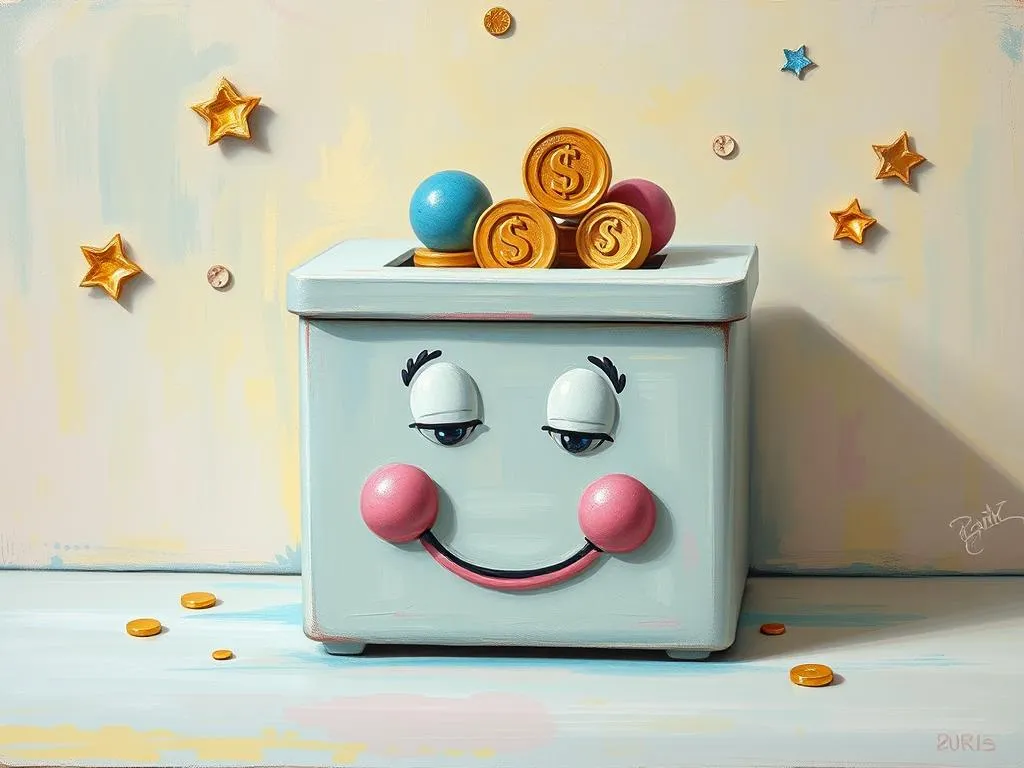
Dreams have long fascinated humanity, serving as a window into our subconscious. Among the myriad of dream themes, money box dreams stand out as particularly intriguing. Such dreams often evoke feelings of curiosity, desire, or anxiety, leading individuals to explore their meanings in relation to their waking lives. Understanding these dreams can provide profound insights into our attitudes toward wealth, security, and personal value.
Symbolism and Meaning
At the heart of money box dreams lies a rich tapestry of symbolism. The money box itself typically represents security and wealth, but its significance can vary based on individual experiences and cultural contexts. For many, a money box may symbolize the desire for stability and control over finances. In this way, it acts as a metaphor for the emotional and psychological aspects of financial security.
In many cultures, money is not merely a tool for transactions but is intertwined with self-worth and success. Thus, dreaming of a money box can reflect one’s personal views on abundance and lack. For instance, if one dreams of finding a money box filled to the brim, it may indicate a feeling of prosperity or an upcoming windfall, while an empty or broken money box could signify feelings of loss or insecurity.
Another layer of meaning comes from the act of opening the money box. This can represent the process of uncovering hidden aspects of oneself, including suppressed ambitions or fears regarding financial matters. If the dreamer struggles to open the box, it might indicate feelings of being trapped or limited in their current financial situation, suggesting a need to confront and address these challenges head-on.
Conversely, if the money box is opened easily and reveals treasures, this can symbolize a newfound opportunity or realization of one’s potential. The emotions experienced during the dream—joy, anxiety, excitement—serve as clues to the dreamer’s current state of mind regarding their financial situation and aspirations.
Key Scenarios and Variations
The context and details of money box dreams can greatly influence their interpretation. For example, one might dream of receiving a money box as a gift. This scenario often signifies unexpected fortune or support from others. It may also represent a newfound responsibility regarding finances, urging the dreamer to take charge of their financial goals.
Alternatively, dreaming of losing a money box can reflect anxieties about financial loss or missed opportunities. This dream scenario may arise during periods of significant change, where the dreamer feels uncertain about their financial stability. Such a dream serves as a prompt for self-reflection, encouraging the dreamer to assess their financial habits and emotional relationship with money.
Another common variation involves finding a money box hidden in an unexpected place. This can symbolize the discovery of untapped potential or resources within oneself. It signifies the dreamer’s capability to uncover hidden talents or strengths that can lead to financial success. The location of the box can also provide insight; for instance, a box found in a childhood home may suggest the need to reconnect with one’s roots or past experiences that influence current financial decisions.
Dreams may also feature a damaged or broken money box. This scenario often points to feelings of vulnerability or fear of financial instability. It may indicate that the dreamer feels their financial resources are at risk, prompting a need to reassess financial strategies or seek support from others.
The act of sharing or giving away money from the box in a dream can represent generosity and the importance of community. This may reflect a desire to contribute to others or a recognition that wealth is most fulfilling when shared. It can also serve as a reminder that true wealth encompasses more than just material possessions; it includes connections and shared experiences.
Real-Life Connections and Takeaways
Understanding money box dreams can provide valuable insights into our waking lives, particularly regarding our attitudes toward finances and self-worth. It is essential for readers to engage in personal reflection to uncover the deeper meanings of their dreams. One way to do this is by keeping a dream journal, where they can note the details of their dreams and any recurring themes.
If a reader frequently dreams about a money box, it may indicate a need to explore their feelings about financial security. Are they feeling abundant or lacking? Such dreams can serve as a catalyst for assessing one’s financial situation, encouraging the dreamer to set realistic goals and explore avenues for improvement.
Additionally, engaging in discussions about money with trusted friends or family can help alleviate feelings of isolation regarding financial concerns. By sharing experiences and insights, individuals can gain perspective and support in managing their financial aspirations and anxieties.
Another practical takeaway is to examine one’s spending habits and attitudes toward money. Are these habits aligned with their values and goals? Reflecting on how money is perceived—whether as a tool for freedom or a source of stress—can lead to healthier financial behaviors and practices.
In a broader sense, money box dreams can encourage individuals to reflect on their definitions of success. Are they placing too much emphasis on material wealth, or are they recognizing the importance of emotional and spiritual fulfillment? This understanding can bring clarity to one’s goals and desires, allowing for a more balanced approach to life.
In conclusion, money box dreams are rich in symbolism and meaning, offering insights into our subconscious attitudes toward wealth and security. By exploring the various scenarios and personal reflections these dreams evoke, individuals can gain a deeper understanding of their relationship with money. As with all dreams, the key lies in personal interpretation, encouraging readers to reflect on their own experiences and emotions. After all, every dream holds the potential for growth, self-discovery, and enlightenment.
